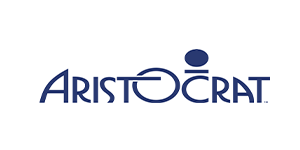- Home
- About IAGA
- Events
- Membership
- Sponsorship
|
Gaming and sports wagering compliance: the patron onboarding journey The know your customer (KYC) onboarding procedures are an essential part of the patron lifecycle in the casino, sports wagering and iGaming industry. Procedures consist of information collection, validation, customer due diligence (CDD), and enhanced due diligence (EDD) to confirm patron identities, understand past customer behavior, identify sources of wealth and assess associated risks. Heightened regulatory scrutiny underscores the need for enhancement and innovation on KYC onboarding procedures to support the following:
As the industry’s digital landscape continues to grow, it is vulnerable to fraud and other financial crimes due to high transaction volumes, cash-intensive operations and patron anonymity. In our review, fraudulent activities can include the following scenarios:
These types of fraudulent activities could lead to money laundering, fraud losses, underage gambling and responsible gaming violations, among other criminal activities. Conducting CDD on all new patrons is vital for industry operators in order to identify patrons and associated risks related to those patrons. New patrons identified with high-risk indicators (e.g., high- limit credit line requests, onboarding information collected links to existing customers, inconsistent customer information against public records that may indicate synthetic identities, politically exposed persons) or who cannot be properly verified through the CDD processes should undergo a level of EDD before their account can be approved. Operators should remember that patron onboarding requires a balance between implementing a comprehensive risk-based KYC process while minimizing customer friction. A slow or outdated onboarding process may prompt patrons to abandon sign-ups, decline participation or switch to competitors. The trend toward adopting technological solutions and leveraging vendor services for automating manual processes or modifying existing procedures not only reveals outdated processes and business functions, but also necessitates internal stakeholders to demonstrate flexibility and adaptability to change. Our interactions with operators suggest that they are keen on leveraging advanced technologies (e.g., biometrics and geolocation) to streamline the CDD and EDD processes to minimize customer friction. Biometric verification, like facial recognition, offers an efficient method to verify user identities. Geolocation tools help ensure compliance with state regulations, providing an added layer of security. Operators are exploring outsourcing KYC programs to third-party vendors to increase operational efficiency and reduce costs. When considering outsourcing, it is crucial to assess vendors’ ability to deliver timely verification without risking data breaches or incorrect transfers, and the ability to integrate with existing systems. The upcoming second installment of this three-part series will focus on the next stage of the patron lifecycle, and the risks and associated industry leading practices for transaction and gaming activity monitoring. How we can help Key takeaways
Operators should keep in mind
The views reflected in this article are the views of the author(s) and do not necessarily reflect the views of Ernst & Young LLP or other members of the global EY organization.
|
















